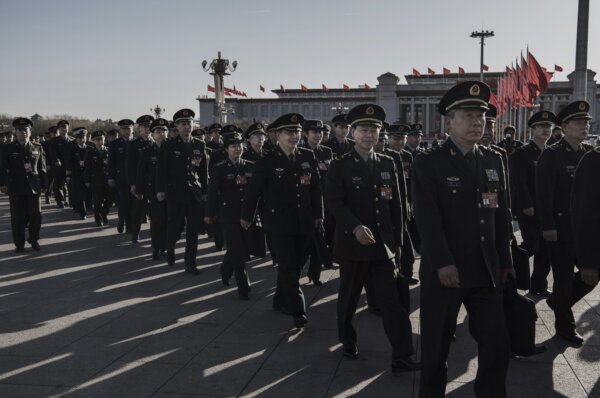
Communist China is grappling with the most severe economic crisis in its history, a downturn that the regime will not recover from, according to Kyle Bass, founder and chief investment officer of Hayman Capital Management.
Bass said U.S. tariffs and declining trade threaten China’s economic advantage, which is its trade surplus with the United States.
China’s exports to the United States plunged by 35 percent in May compared to a year earlier, according to Chinese customs data.
“China’s once bright spot is now in question,” Bass said. “I actually am surprised it’s not down more.”
China has also been hit hard by capital flight.
In 2024, Bass said, China experienced a massive outflow of both foreign direct investment (FDI) and portfolio investment totaling about $500 billion, pointing to the gap between its trade surplus of about $980 billion and its current account surplus of about $420 billion.
“So the Chinese government is pretty good at lying about whatever they want to lie about, but the bond market kind of tells the truth, and the bond markets telling you that China is in an economic winter,” Bass said.
In February, the national unemployment rate reached 5.7 percent, the highest in two years, while the youth jobless rate topped 16.9 percent.
Taiwan
Despite China’s economic struggles, the United States continues to rely on China for certain imports, particularly rare earths and pharmaceutical ingredients.
In the face of China’s leverage over these items, Bass said that the United States retains the ultimate “trump card” through its control of the global dollar system.
“They don’t have the ability to purchase things around the world in yuan or RMB because no one accepts a currency they don’t trust or that doesn’t trade,” Bass said.
Bass stated that the United States should signal to Beijing its intention to sever China’s access to the dollar system, the very moment the regime initiates military action against Taiwan.
“Deterrence is something that we should all be engaging in to try to stop China from being militaristically belligerent with Taiwan,” Bass said.
“That is a better first move on our part than sending carrier strike groups of our brave men and women into the Taiwan Strait in a kinetic conflict with China … tens of thousands of our men and women will die if that happens.”
The Chinese Communist Party (CCP) claims Taiwan as a renegade province, intent on annexing the island, though the regime has never exercised authority there. Taiwan is a de facto independent nation with its own democratically elected government, military, constitution, and currency.
“It’s public that Xi has ordered his military to be capable of invading Taiwan by 2027,” Hegeseth said at the time. “Any attempt by communist China to conquer Taiwan by force would result in devastating consequences for the Indo-Pacific and the world.”
“I bet it unmoored China’s views of warfare,” he added
Bass said he believed the situation in Iran “is going to make the Chinese think twice about being more belligerent on the military side with Taiwan.”
Ultimately, the Chinese regime aims to break the first and second island chains and “project power all the way to San Francisco,” Bass said.
Taiwan sits at the heart of the first island chain that stretches from the southern Japanese island of Kyushu, the Philippines, to the Malay Peninsula. The second island chain extends from Japan through Guam to Micronesia.
Bass warned that “allowing China to simply take over Taiwan is something that is an existential national security crisis for the U.S.”











